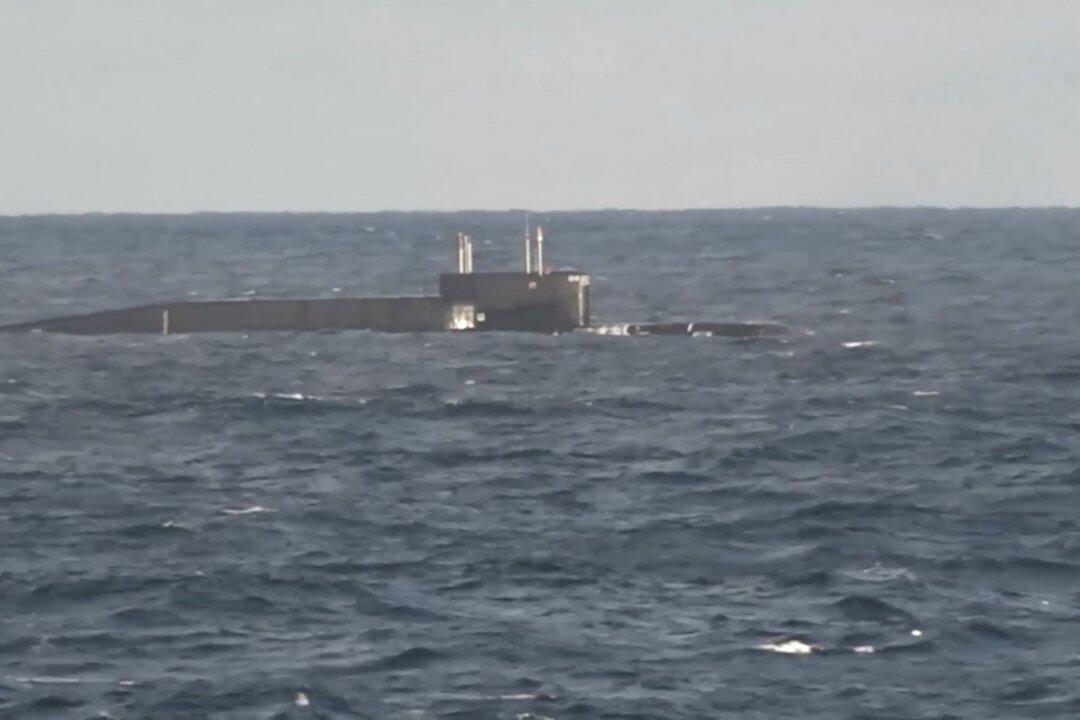FRONT LINES NORTH OF KHERSON, Ukraine—Russia rehearsed its response to a nuclear attack on Wednesday in an exercise involving nuclear submarines, strategic bombers, and ballistic missiles at a time when tensions are high over a “dirty bomb” allegation it has made against Ukraine.
Russian President Vladimir Putin remotely observed the annual exercise, called “Grom” or “Thunder,” which uses test launches to put Moscow’s nuclear forces through their paces in a show of force designed to deter and intimidate foes.





